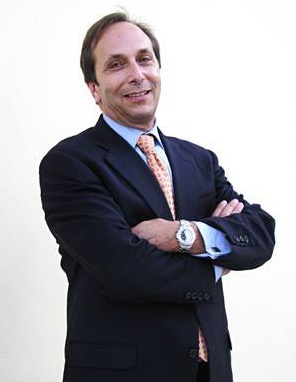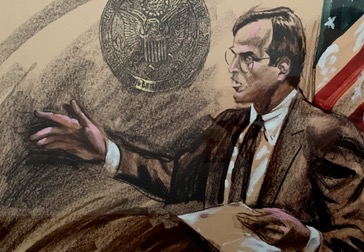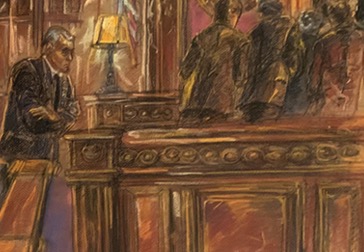Anticorruption Enforcement In Asia Proves FCPA Is Alive Under Trump
This past June, Chicago-based spirits manufacturer Beam Suntory Inc. agreed to pay more than $8 million to the U.S. government to resolve Foreign Corrupt Practices Act (FCPA) charges for improper payments by its Indian subsidiary to Indian government officials. Beam resolved the SEC’s civil charges without admitting or denying the allegations.
This latest settlement demonstrates two important principles. The first is that companies conducting business in Asia continue to face formidable anticorruption risk. The second is the FCPA is alive and well under the Trump Administration, despite predictions to the contrary.
Enacted in 1977, the FCPA is a criminal statute that prohibits companies from paying bribes to foreign government officials or entities for the purpose of obtaining or retaining business. Since its enactment more than 40 years ago, the Foreign Corrupt Practices Act (FCPA) has evolved into a powerful mechanism to combat global corruption.
Following nearly two decades of relative inactivity, enforcement under the landmark anti-corruption statute has experienced a steady but dramatic rise over the past 20 years, particularly in countries all over Asia. Entrenched and pervasive graft in China and India in particular renders foreign companies especially vulnerable to violating the FCPA.
In 2016, FCPA enforcement appeared to reach its pinnacle after U.S. regulators brought more than 60 corporate and individual enforcement actions for alleged FCPA violations, the highest number to date. For the first time in FCPA enforcement history, the aggregate dollar value of monetary fines and other related sanctions imposed by the Department of Justice (DOJ) and Securities and Exchange Commission (SEC) topped $2.4 billion. Unsurprisingly, the majority of enforcement activity that year focused on misconduct that occurred in China.
Donald Trump’s election to the White House in November 2016, however, prompted speculation regarding the new administration’s commitment to FCPA enforcement. In the past, President Trump had expressed skepticism toward the anticorruption law. As a result, many wondered whether FCPA enforcement would suffer under the new government after years of robust activity.
An examination of the Trump Administration’s FCPA enforcement record during its first year demonstrates that, since taking office, the Trump Administration has taken more than two dozen enforcement actions against corporations and individuals for FCPA violations all over the world, including in Asia.
Recent FCPA activity has seen the continuing rise of coordinated multi-jurisdictional enforcement actions and the unprecedented monetary sanctions (often split among different international enforcement authorities) that inevitably accompany them.
In January 2017, for example, Rolls-Royce agreed to pay $800 million in fines for engaging in a global conspiracy to violate the FCPA that spanned half a dozen countries over three different continents. In Thailand alone, Rolls-Royce admitted to using intermediaries to pay approximately $11 million in bribes to officials at Thai state-owned and state-controlled oil and gas companies. U.S. authorities received approximately $170 million of the final settlement, while Brazil and the United Kingdom received the remainder.
In September 2017, Swedish telecom giant Telia AB agreed to pay more than $965 million to authorities in the U.S., Sweden, and the Netherlands for bribes it paid to Uzbek government officials in exchange for better market access in the Central Asian country.
In December 2017, Singaporean company Keppel Offshore and Marine Ltd. agreed to pay more than $422 million to authorities in the U.S., Singapore and Brazil in connection with allegations that it had paid $55 million in bribes to Brazilian government officials, including the country’s state-owned oil company, Petrobas. U.S. regulators received roughly $106 million of the penalty while the remainder was received by state treasuries in Singapore and Brazil. Cumulative penalties for the Rolls-Royce, Telia, and Keppel matters alone reached $2 billion.
In addition to the continued proliferation of global prosecutions, there have been a rising number of FCPA actions involving foreign companies under the Trump administration. Since its inception, the FCPA has been vulnerable to accusations that the law puts American businesses at a huge disadvantage compared to non-U.S. companies. But recent figures are revealing and cast some doubt on the validity of this assertion. Last year, U.S. regulators brought more actions against foreign companies (six) than they did against U.S. companies (five) for the first time in nearly a decade.
The growing number of foreign companies targeted by the FCPA has resulted in a swelling chorus of voices abroad alleging that the Trump Administration is deploying the anti-corruption statute as a mechanism to advance its “America First” agenda.
However, the more likely explanation is that U.S. regulators have become more amenable to rely on the anti-corruption statute’s broad extraterritorial reach to exercise jurisdiction over foreign companies and individuals. Both U.S. and foreign companies operating in Asia should be particularly attuned to the anticorruption risk they face in the region as well as the U.S. government’s willingness to pursue enforcement action.
As the government’s latest settlement with Beam over its conduct in India illustrates, FCPA enforcement is here to stay despite any fears—or hopes—to the contrary.
by: Ronak D. Desai
Jul 31, 2018
https://www.forbes.com/sites/ronakdesai/2018/07/31/anticorruption-enforcement-in-asia-proves-fcpa-is-alive-under-trump/#4b7788304edc








